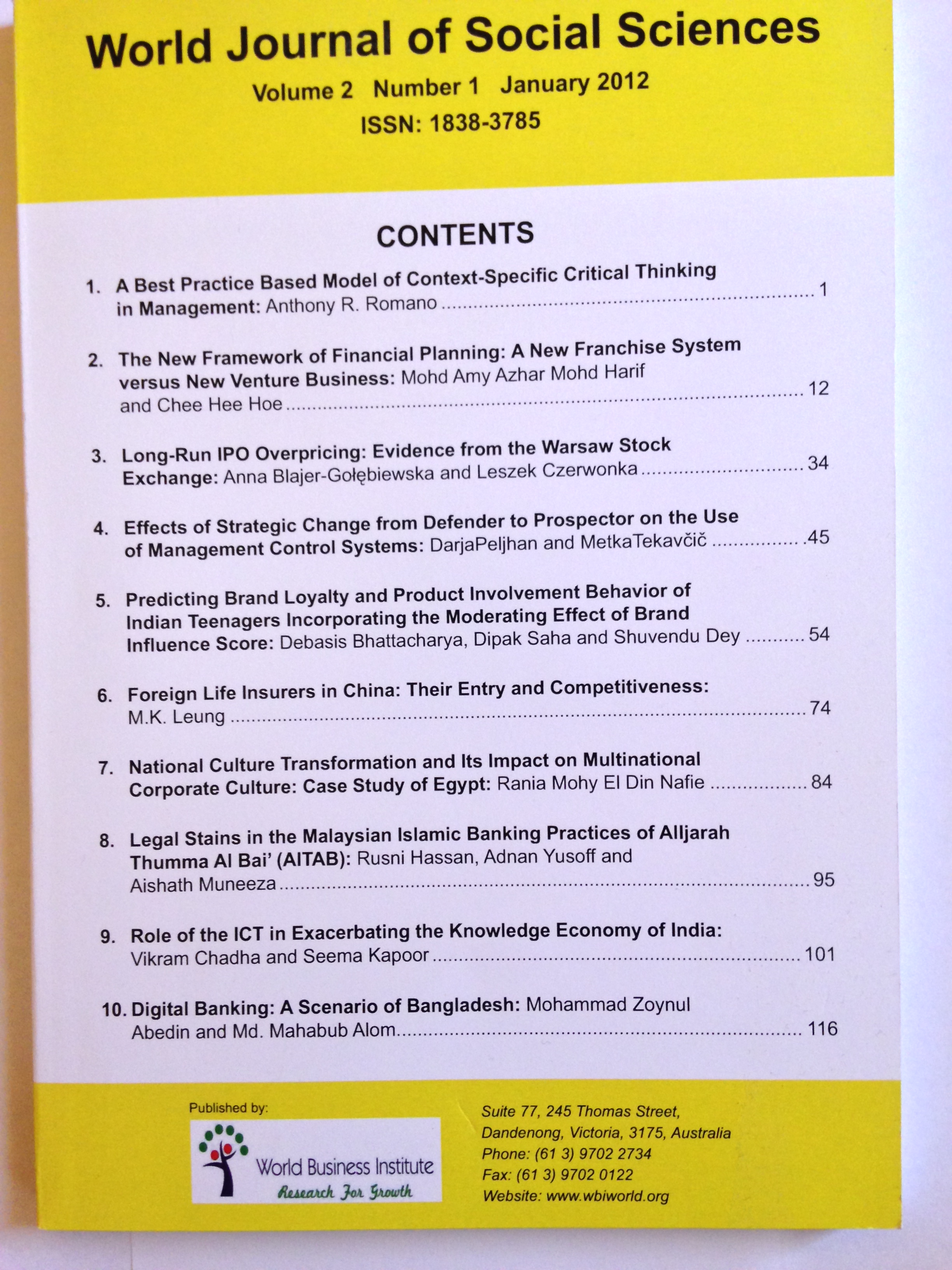September 2018 (World Journal of Social Sciences)
Total Articles - 13

